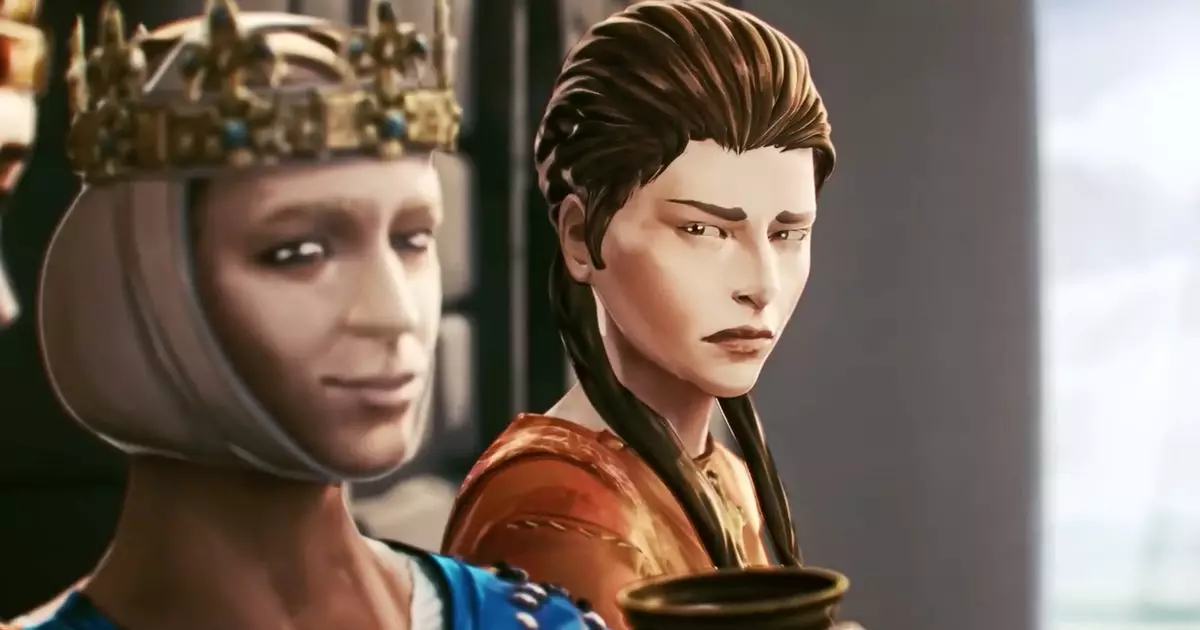Recently, Paradox Interactive set off the excitement bells in the gaming community with its latest player survey for the acclaimed grand strategy game, Crusader Kings 3 (CK3). This survey, which offers players an opportunity to voice their opinions on the future trajectory of the game, underscores the developer’s commitment to fostering a participatory relationship with their audience. It’s much more than just a routine inquiry; it’s a strategic tool for gauging player sentiment and preferences, possibly impacting the game’s direction, especially with the impending updates and expansions that fans eagerly await.
Indeed, a survey serves more than mere statistical analysis; it acts as a sounding board for creativity and innovation. By indulging in detailed questions about gameplay experiences, such as player archetypes (whether one leans more toward roleplaying or tactical prowess), Paradox demonstrates a keen understanding of the dual nature of strategy gaming. The ability to create a vibrant, living narrative while navigating the complexities of land management and warfare is at the heart of CK3. Here, Paradox skillfully navigates between the art of game development and the intricacies of community engagement.
Unpacking Player Archetypes
One particularly noteworthy aspect of the survey is its inquiry into player archetypes, revealing how players perceive their engagement with the game. Questions about whether someone enjoys roleplaying a cunning rogue, a money-hungry baron, or a strategic mastermind not only identify personal tastes but highlight the range of experiences CK3 offers. This analysis dwells on deeper motivations, glimpsing into why players place value on narrative, strategy, and particular gameplay aspects.
In a world where players can craft their narratives, this conceptual framework reshapes our understanding of expert design. The variance in responses allows the developers to focus on enhancing features that align with how the community interacts with various game systems. Is it the drama of marriage negotiations that intrigues the players more, or is it the gallant charge of armies on the field? By distinguishing these preferences, Paradox is poised to refine the game’s architectural elements accordingly.
Trade, Merchants, and the Evolution of Gameplay
The survey also digs into player preferences regarding themes like trade and merchants, suggesting a potential expansion in these domains. By asking focused questions about aspects such as naval trade, merchant republics, and banking, Paradox not only showcases a willingness to adapt the game’s economy but also aims to implement depth into its existing systems. This breadth of exploration can significantly enrich gameplay, introducing complex interactions and new challenges that require both strategic foresight and adaptability.
Imagine a scenario where players can create a bustling economy through clever trading routes, enabling deeper strategic planning. The incorporation of detailed systems centered around commerce may resonate with players enthusiastic about overcoming logistical challenges while simultaneously shaping their realm’s destiny through trade alliances in the face of adversaries. Greater economic complexity can open doors to novel narratives, enriching the overall CK3 gameplay experience.
The Role of Emerging Storytelling
Another intriguing feature highlighted is the transition toward emergent storytelling, particularly as seen in expansions like “Roads to Power.” This concept reflects the organic growth of narratives shaped by player decisions, where every marriage, battle, and betrayal adds layers to the overarching saga. Players appreciating spontaneous narratives can breathe life into characters or factions, intensifying immersion.
While players like Brendy find joy in crafting unexpected tales strewn with outcomes beyond their control, it stands as a testament to the unpredictability of history—an essential ingredient that makes games like CK3 so captivating. As these narratives unfold, they remind us that strategy gaming is not solely about conquest; it’s about the stories birthed from the decisions that lead to triumphs or tragedies. The continued focus on this element is promising, ensuring that the game remains a living tapestry woven with diverse threads.
In essence, Paradox finds itself at a crossroads, empowered by its community’s feedback. By harnessing player insights and aspirations, the developers are not just crafting a game but are potentially laying the foundation for a more dynamic narrative experience, continuing the evolution of one of the most celebrated titles in the grand strategy genre.

